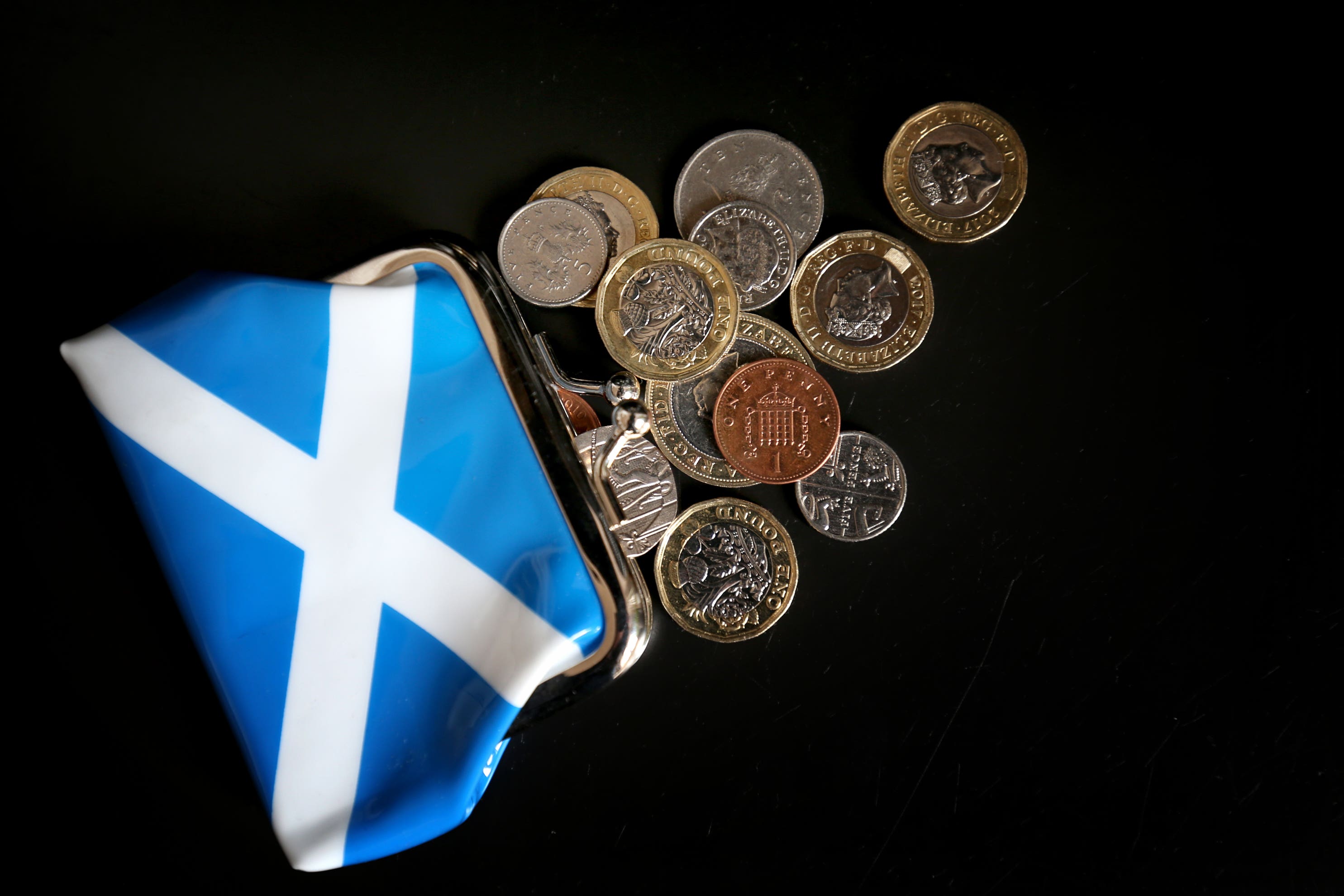Scotland’s deficit falls as North Sea revenues reach record £9.4bn
The figures are revealed in the latest Government Expenditure and Revenue Scotland report, published on Wednesday.

Your support helps us to tell the story
From reproductive rights to climate change to Big Tech, The Independent is on the ground when the story is developing. Whether it's investigating the financials of Elon Musk's pro-Trump PAC or producing our latest documentary, 'The A Word', which shines a light on the American women fighting for reproductive rights, we know how important it is to parse out the facts from the messaging.
At such a critical moment in US history, we need reporters on the ground. Your donation allows us to keep sending journalists to speak to both sides of the story.
The Independent is trusted by Americans across the entire political spectrum. And unlike many other quality news outlets, we choose not to lock Americans out of our reporting and analysis with paywalls. We believe quality journalism should be available to everyone, paid for by those who can afford it.
Your support makes all the difference.Scotland’s finances are “improving at a faster rate” than the UK as a whole, a key ally of First Minister Humza Yousaf has insisted – despite new figures showing spending in Scotland continues to exceed the amount raised in revenue.
Public spending north of the border amounted to £106.6 billion in 2022-23 – up by £9.3 billion (9.5%) on the previous year.
The amount raised in taxes also rose to an estimated £87.5 billion, including a record £9.4 billion in North Sea revenues.
This increased from £2.4 billion in 2022-22 following the introduction of the UK Government’s energy profits levy – a windfall tax on the oil and gas industry.
Total revenue for Scotland increased by £15 billion (20.7%), which compares to growth of 11.3% for the UK as a whole.
As well as the rise in North Sea revenues, Scottish Government income from other sources increased by £8.1 billion (11.5%) – including a £1.9 billion rise from Scottish income tax.
Overall, the Government Expenditure and Revenue Scotland (Gers) figures show the country had a £19.1 billion deficit – the equivalent of 9% of GDP.
The UK had a deficit of 5.2% of GDP.
Experts at the Institute for Fiscal Studies said the deficit in Scotland “remained substantially higher than that of the UK as whole”.
Associate director David Phillips said: “In contrast to the situation for the UK as a whole, the surge in oil – and especially gas – prices last year led to an improvement in Scotland’s fiscal position.
“However, Scotland’s notional fiscal deficit remained substantially higher than that of the UK as a whole – 9.0% of GDP compared to 5.2%.
“The gap is set to widen again from next year if oil and gas prices fall back as forecast.”
However with the 2021-22 deficit in Scotland being 12.3% of GDP, Wellbeing Economy Secretary Neil Gray hailed the reduction.
He also claimed a “full £1 billion” of the deficit in Scotland was “the direct result of the UK Government’s mismanagement of the public finances”.
Mr Gray said: “I am pleased that Scotland’s finances are improving at a faster rate than the UK as a whole, with revenue driven by Scotland’s progressive approach to income tax and our vibrant energy sector.”
While Scotland received more than £9 billion in North Sea revenues last year, a further £78.1 billion went to Westminster – which amounted to 7.7% of all UK revenue.
Mr Gray said the Gers figures show how “the UK continues to benefit from Scotland’s natural wealth”.
But he added: “These statistics do not reflect the full benefits of the green economy, with hundreds of millions of pounds in revenue not yet captured.
“It is important to remember that Gers reflects the current constitutional position, with 41% of public expenditure and 64% of tax revenue the responsibility of the UK Government.
“An independent Scotland would have the powers to make different choices, with different budgetary results, to best serve Scotland’s interests.
“While we are bound to the UK’s economic model and do not hold all the financial levers needed, we will continue to use all the powers we do have to grow a green wellbeing economy, while making the case that we need independence to enable Scotland to match the economic success of our European neighbours.”
The rise in expenditure in Scotland included “significant spending on support for the cost of living for households and businesses”, the Gers report said, with this worth £4.5 billion for Scotland in 2022-23.
Spending on reserved debt interest payments, which are partly linked to inflation, also increased “sharply”, it was noted.
The reduction in the deficit was “primarily explained by the contribution of North Sea revenue and activity”, the report concluded.
Scottish Secretary Alister Jack said: “The Scottish Government’s own figures show yet again how people in Scotland benefit hugely from being part of a strong United Kingdom.
“Scotland’s deficit is more than £19billion – even in a year of exceptional North Sea Revenues. Without oil and gas, that figure soars to more than £28billion.
“People in Scotland benefit to the tune of £1,521 per person thanks to higher levels of public spending.
“As we face cost of living pressures and unprecedented global challenges it is clear Scotland is better off as part of a strong United Kingdom.”
Meanwhile, Scottish Labour finance spokesperson Michael Marra said: “Today’s statistics plainly show the economic benefit that Scots receive as part of the UK and expose the SNP’s plans for independence as little more than a charter for austerity.
“With Scots individually benefiting to the tune of some £2,217 from higher spending in Scotland despite the larger negative balance in Scotland’s public finances, the potential harsh financial cost of leaving the union is laid bare for all to see.”